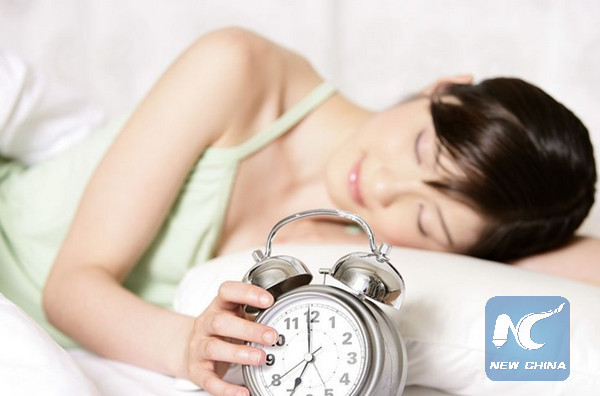
File Photo
WASHINGTON, May 21 (Xinhua) -- New research published on Monday in the Proceedings of the National Academy of Sciences revealed that staying awake all night and sleeping all day for just a few days can disrupt levels and time of day patterns of more than 100 proteins in the blood.
Those proteins can influence blood sugar, energy metabolism, and immune function, according to the study.
"This tells us that when we experience things like jet lag or a couple of nights of shift work, we very rapidly alter our normal physiology in a way that if sustained can be detrimental to our health," said the paper's senior author Kenneth Wright, director of the Sleep and Chronobiology Laboratory at University of Colorado Boulder.
The study is the first to examine how protein levels in human blood, also known as the plasma proteome, vary over a 24-hour period and how altered sleep and meal timing affects them.
The study also pinpointed 30 distinct proteins that, regardless of sleep and meal timing, vary depending upon what internal circadian time it is.
The findings could open the door for developing new treatments for night shift workers, who make up about 20 percent of the global workforce and are at higher risk for diabetes and cancer and also enable doctors to precisely time administration of drugs, vaccines and diagnostic tests around the circadian clock.
"If we know the proteins that the clock regulates, we can adjust timing of treatments to be in line with those proteins," said the paper's lead author Christopher Depner, a postdoctoral researcher in the university's Department of Integrative Physiology.
The researchers recruited six healthy male subjects in their 20s to spend six days, with their meals, sleep, activity and light exposure tightly controlled.
On days one and two, the men stuck to a normal schedule. Then they were gradually transitioned to a simulated night-shift work pattern, in which they had eight hour sleep opportunities during the day and stayed up all night, eating then.
Researchers drew blood every four hours and assessed levels and time-of-day-patterns of 1,129 proteins. They found 129 proteins whose patterns were thrown off by the simulated night shift.
"By the second day of the misalignment we were already starting to see proteins that normally peak during the day peaking at night and vice versa," Depner said.
One of those proteins was glucagon, which prompts the liver to push more sugar into the bloodstream. When subjects stayed awake at night, levels not only surged at night instead of day but also peaked at higher levels.
Long-term, this pattern could help explain why night-shift workers tend to have higher diabetes rates, Depner said.
The simulated night shift schedule also decreased levels of fibroblast growth factor 19, which has been shown in animal models to boost calorie-burning or energy expenditure. This fell in line with the finding that subjects burned 10 percent fewer calories per minute when their schedule was misaligned.
The researchers noted that they kept all the study subjects in dim light conditions, so that light-exposure (which can also strongly affect the circadian system) didn't influence results.
Even without the glow of electronics at night, changes in protein patterns were rapid and widespread.
"This shows that the problem is not just light at night," Wright said. "When people eat at the wrong time or are awake at the wrong time that can have consequences too."

